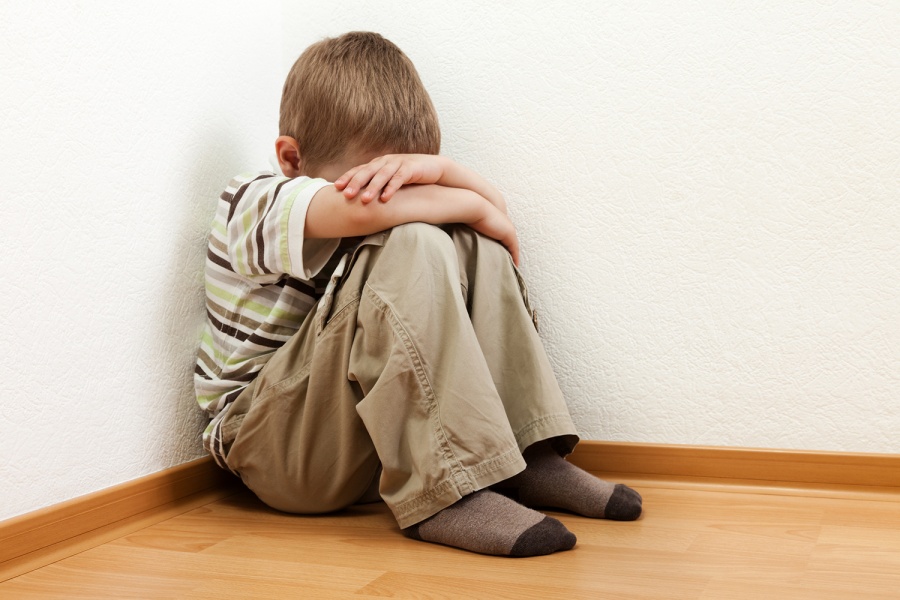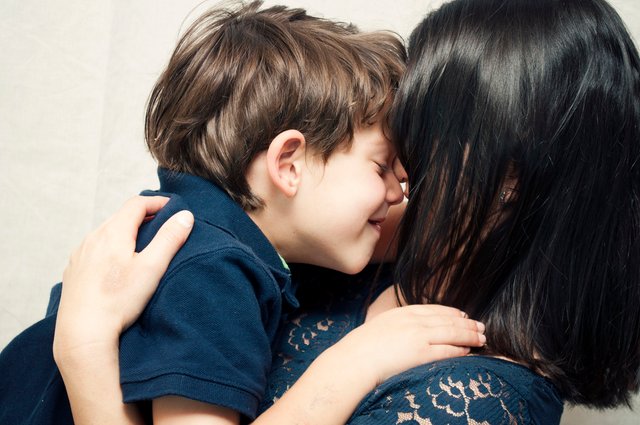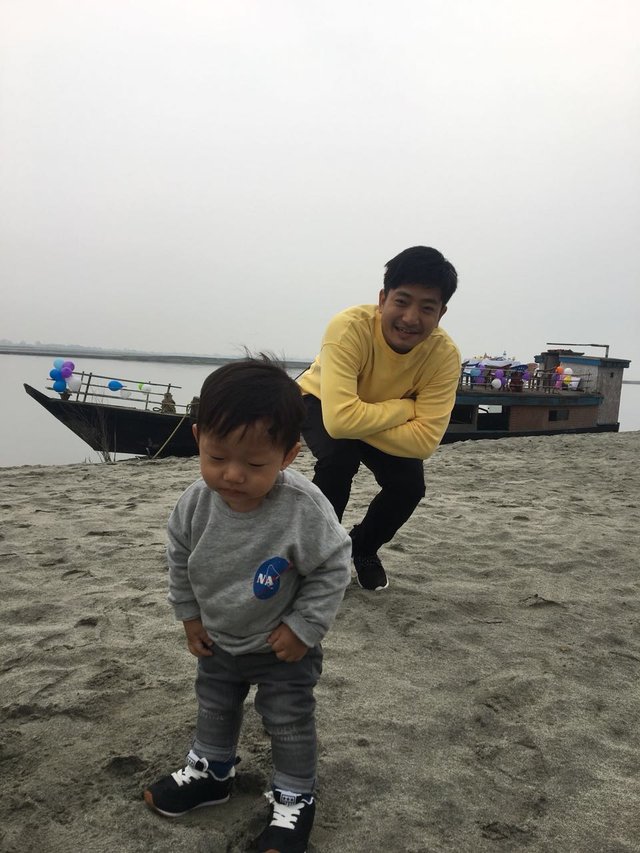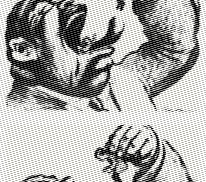Should we punish our children?
The issue of punishing children has been a hot topic for years. There are numerous pieces of research into it, but due to the high level of variables the results are correlational.
But leaving psychological research aside, I wanted to discuss this at a more down to earth level.
My personal opinion is that no child is born 'bad'. There are kids with higher needs and more problem-prone personalities, but 'naughtiness' isn't a trait, but a red flag. When they behave badly, they have a reason for it.
Younger children are learning so much about being human, about their emotions and their social environment, that they will naturally go wrong sometimes. Their nervous system is still under-developed and it can be very difficult for them to successfully regulate their emotions and outbursts on their own. They need our understanding and help.
A close friend of mine has just had her second baby and her four year old is struggling to adapt. A few days ago he randomly decided to hit the new baby. His mum knows hitting is wrong, plus it took her ages to settle the baby and barely slept the night before so she got angry - a very normal reaction - and decided to send him to the naughty corner; he also got called 'bad' or 'mean'. Sounds like a very normal reaction for a lot of parents.
Let's picture what happened in this little boy's mind. He felt very jealous of the new baby and became so angry that he couldn't control himself. He was in a lot of emotional pain and needed his parents' help to deal with it. However, his mum left him alone with the horrible feelings. Instead of learning how to manage his strong emotions or react better, he learned that he is a bad person. The one he relied on seemed to be against him, when she should have been his most needed support. So this child is feeling lonely, angry, confused, and still very jealous.

The best thing to do in a situation like this is to calm down. Make sure no one is in danger and take a few deep breaths before you do anything else. It takes a lot of hard work to control your own anger, but it's crucial to your child's development.
The advice I gave my friend was this:
It's important to tell the child that hitting is wrong, but it's even more important to acknowledge his feelings.
Simply saying 'I can see you are very upset/angry/jealous, but we don't hit each other' can make him feel understood. Children are much more likely to learn from you when they think you are on their side.
Instead of isolating him and making him feel like a bad person, get him involved in helping the situation. Maybe ask what he could do to make baby feel better. And later spend some quality time alone with him, make sure he doesn't feel left out.
Try to figure out what's going on with your child and how you can help him. When my son is being a little difficult I start by asking myself: is he hungry? tired? bored? Does he feel ignored or neglected? Is he going through a change or difficult time? Maybe I haven't been spending enough time with him. Almost every time one of these is true. Other times he is just confused about how he should behave and needs a little guidance.
But shouldn't children learn about consequences?
Absolutely! The key is that consequences should always be directly related to the action. If my son was being a pain at the supermarket and I had to leave, the next day I'd I tell him that he can't join me when I go shopping. He might get upset but I explain that there would be other opportunities for him to come with me and behave better.
If your children made a mess and you're taking away their toys, it doesn't make any sense. Instead, make sure they clean the mess themselves. If they refuse to, let them know that you won't have time to read a story at bedtime because you had to clean up after them.
These are called natural consequences.
- I didn't refuse to take you with me as punishment, but because I need to do the shopping and you prevented me from doing so the day before.
- I didn't decide to not read a story as punishment, but since I spent my time cleaning, there was no time to read stories - naturally.
This way children get to learn that there are consequences to their actions, but you aren't hurting them purposefully. You get to stay on the same team.

This is a complex subject and I will go into more details about specific situations in later posts. I will be more than happy to respond to any questions.
Thank you so much for reading and I hope you found this post useful.
Corina
hello @corina excellent publication I have a boy of 4 years and finally he does not want to pay attention, in the school he fights with other children. its behavior is difficult. thanks for the tips. I will implement them.
This post, with over $50.00 in payouts, has received votes from the following bidbots.
smartsteem payout in the amount of $89.53 USD.
appreciator payout in the amount of $48.20 USD.
booster payout in the amount of $32.42 USD.
upmyvote payout in the amount of $28.10 USD.
buildawhale payout in the amount of $9.52 USD.
For a total calculated bidbot upvote value in the amount of $207.77 USD.
This information is being presented in the interest of transparency on our platform.
Please consider the long term effect on our platform before using bidbots!
You can read more about how bidbots are affecting our platform here.
This comment is by no means a judgement of your work @corina, only an earnest appeal that we might all work together to build a great platform by letting the community curate our work and not bidbots.
@Transparencybot is a non-profit initiative, please consider supporting it and the transparency it brings to our platform.
Thank you for your comment and your work in keeping the platform transparent.
We are all aware that good quality posts get lost everyday without a chance to be seen by many people. I will let the community decide whether or not I post good content, but first they need a chance to see my writing. Thank you.
Thank you for the constructive comment.
Blessings!
Very well said, I am also having much trouble in getting my posts visible, I have written quite a number of articles, I am a newbie, but haven't been able to get beyond $1.4 until now, all my posts are not earning much. I would like to get some guidance in this regard on how to promote my content, my content might not be the best, but it is also not bad
Certainly a well thought out article and I do agree with a lot of it. Still, as someone who grew up in the 50's, I have a different opinion on physical punishment than you do. My father was known to spank on occasion and I think he was right to do so.
Yes, teaching about consequences for actions is important, but the physical aspect of that is way over simplified. What needs to be conveyed is that "hitting in anger" is wrong and no one should ever strike a child in anger, ever. Still, in rare and measured circumstances, a little physical intervention can be useful and beneficial.
Many years ago, there was a situation where a girlfriend was visiting with her kids. The little boy started eyeing a glass figurine on a table and started reaching for it. I told him "No" and that he would get his hand slapped if he grabbed for it. He did and I did. Then I put my arms around him and told him that I loved him and didn't ever want to have to hurt him. I told him that he knew what would happen and that he had to understand that, if I told him something, I meant it. All in all, he ended up knowing he could trust that I would live up to whatever I said to him, promises as well as consequences. That even extended to his sister who had just been an observer. She had a moment right after this that she glanced at the figurine just to test me. I just looked at her and told her, "don't, you know what will happen". She took a look at me and went to do something else.
Kids need consequences that are unpleasant enough to be deterrents. They need to understand that you love them and that any consequences are directly related to what they did and not your angry reaction to what they did. Whatever you do, they need to see it as being fair and part of your job to teach them about rules and consequences.
If a child understands rules and consequences, as well as that the consequence will be quite unpleasant, they will behave in a way that makes punishment rarely needed. When you give a child a 'punishment' that they think 'isn't all that bad', they may decide that they want the "forbidden thing" more than they don't want the "punishment". It may seem like a good trade-off. It's a complicated situation that's a little bit different for every parent-child situation.
Thank you for your comment. Physical punishment is very effective on the short term. Children stop a behavior because of the fear of receiving painful consequences. On the long term however, this isn't sustainable, as children don't learn to behave a certain way for the right reason, but because of fear.
When we apply a punishment we let the child know that we don't trust that they can learn another way, we don't trust their judgment. Therefore they have no reason to work towards proving themselves.
Children should grow to want to be 'good'. And this should be rooted from the close relationship they have with their parents and the desire to not disappoint them. The more we punish our children, the more this desire diminishes; instead, they grow a will to 'fight back'.
Don't mind if I jump in here between @escapefromoz and @corina.
I can see your point as a parent @corina, and as an adult in social situations @escapefromoz. I think we can take greater notice of the root of the behaviour and yes, there can be natural consequences which they will have the opportunity to learn about.
However I do agree with @escapefromoz to some extent. The sad thing is, in an education setting where there are tasks, targets and activities to be done, a misbehaved child in a group becomes a whole different class of crowd control. I have had the "pleasure" of some young ones with diverse parenting backgrounds. Some were special needs too. No doubt the situation I found myself in with limited time, lots to cover and a range of kids was not the best. But what I personally felt was we needed to set some rules of engagement, boundaries and expactations - and when these aren't met - the consequences are timeouts. Sure - it doesn't resolve the root - but I feel the time to address that should be separate - and it should ideally involve the parent, who can then follow up on the behavioural pattern at home.
If all parents took the time at home to help children figure out how to regulate their emotions and behaviour, half the battle would already be won at school. Sadly, what I personally see here in Kuala Lumpur is a city of exhausted working parents who have very little emotional energy left to parent. Even in my best efforts to create an engaging learning environment - I am constantly having to redirect so much of my time and energy into crowd control, by the end of which sometimes i even lose track of my sentence at mid point. :) LOL
I guess what my personal feel is - there is unfortunately a lot of room created for punishment as the most effective learning experience given a time sensitive action, response or preventive act - for various reasons. I'm not FOR punishment, but I don't think we should altogether view it as a failure as a parent, educator or social interactor. It is a form of learning at the end of the day. Some lessons are kind, some not so much and just as soon as they can interact with the world - the better it is for them to realise there are many types of consequences - not just punishment, but a variety of learning opportunities.
Thank you for your comment. I can see exactly where you're coming from and you are right. Sometimes time-out is necessary to defuse the situation and to help children calm down. With parents, I usually suggest time-in, where the parent helps the child to process the emotions and calm down. Obviously, this isn't always possible as most children are spending a lot of time away from their primary care-givers. Just like you said, action should be taken by the parents as soon as possible.
Yes, exactly. And the parent/caregiver and educator relationship can be a great partnership too. For example if the child is given a time-out in school, the parent can actually then discuss this at home. I don't think there is any point in continuously hand slapping a behaviour without actually addressing the root.
As the saying goes - teamwork makes the dream work. Hope there can be more partnerships - after all, it really does take a village to raise a child.
To listen to the audio version of this article click on the play image.

Brought to you by @tts. If you find it useful please consider upvote this reply.
Nice post, really nice topic to choose.

Even i argue that we should not hit children , rather we should try to understand them. Yes many are naughty true , are yeah we have to correct them in some case have to punish them too but we adults should keep 1 thing in mind that they are really sensitive. So according to their level we should teach them what is bad what is not. But we should always let them enjoy :) until unless they doing something bad .
This post reminded me of my nephew. I just share his picture here :) made my day this post.
Upvote from my side
Your nephew is adorable! Many thanks for your kind comment
thank you so much :)
<3
I remember when I was younger, I used to get the cane from my dad if I don't listen to the elders. After I reached maybe 10, he stopped when he found peace in the church. I think that punishing shouldn't be painful but meaningful and educational. Once lesson learnt, the young ones will remember the incident and will not do it again... That's my way LOL
Good writeup!
Thank you for your comment.
I think children still needs some punishment as long as it's not that much to give them some sense of liability on their own actions. Of course, it not enough just to punish. It's best to explain to the kid why he's being punished and that he must behave accordingly.
I think we can teach children about consequences without punishing them, like I explained in the second part of my post. Many thanks for your comment.
you are r8 .
Our children are P̫̩U̖̳̜̩̰N͚̼̦I̭͇͓̳̣̲͉SH͍͍̞̮E͈͍D͖͖̫̞̼̩̳ merely for being born into this corrupted world ran by a small group of psychopaths with inordinate resources and inordinate influence over our governments.

We must all work together to become the change we wish to see, not try to m͔̪͓͙͔͍͚o̹̬̹̞l̼͇͔d̫̫̯͙̙̘̣͜ our children into that change.
I grew up in the post war generation. My parents and teachers were strict and we knew how far we could push them. We had the utmost respect for all elders and yes, we did get a slap or at school the guys would get walloped with the cane. I never remember my parents lifting their hands to us kids. We grew up in a world of discipline where love and security were evident. We didn't suffer from stress, anxiety depression, Conditions so many youngsters are being treated for today. Life happened and we got on with it. However this attitude does I realize open doors to abuse of children. We also grew up in very different times when drugs were what the doctor prescribed.
Thank you for your comment. I think the most important part is 'love and security were evident'. This is the safe base that gives children confidence and resilience.
A very interesting story! In my opinion, I think it would work a lot if people would (indeed, like you stated) keep calm themselves. You can't calm someone down, if you're stressed out yourself. I don't have any children of my own so I can imagine that 'keeping your cool' is not always an easy thing to do, but still - it's best for young kids.
It's reaaaaly hard sometimes! Sometimes I need to leave the room and take ten minutes before I open my mouth so I don't shout. Thank you for your comment